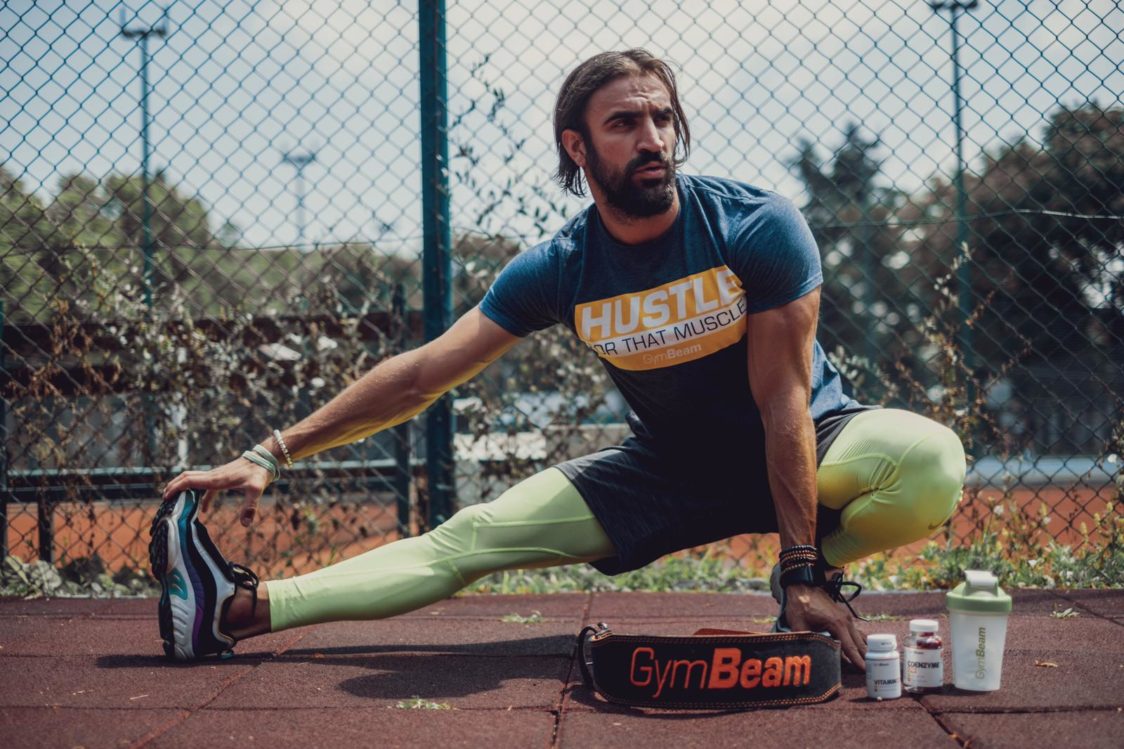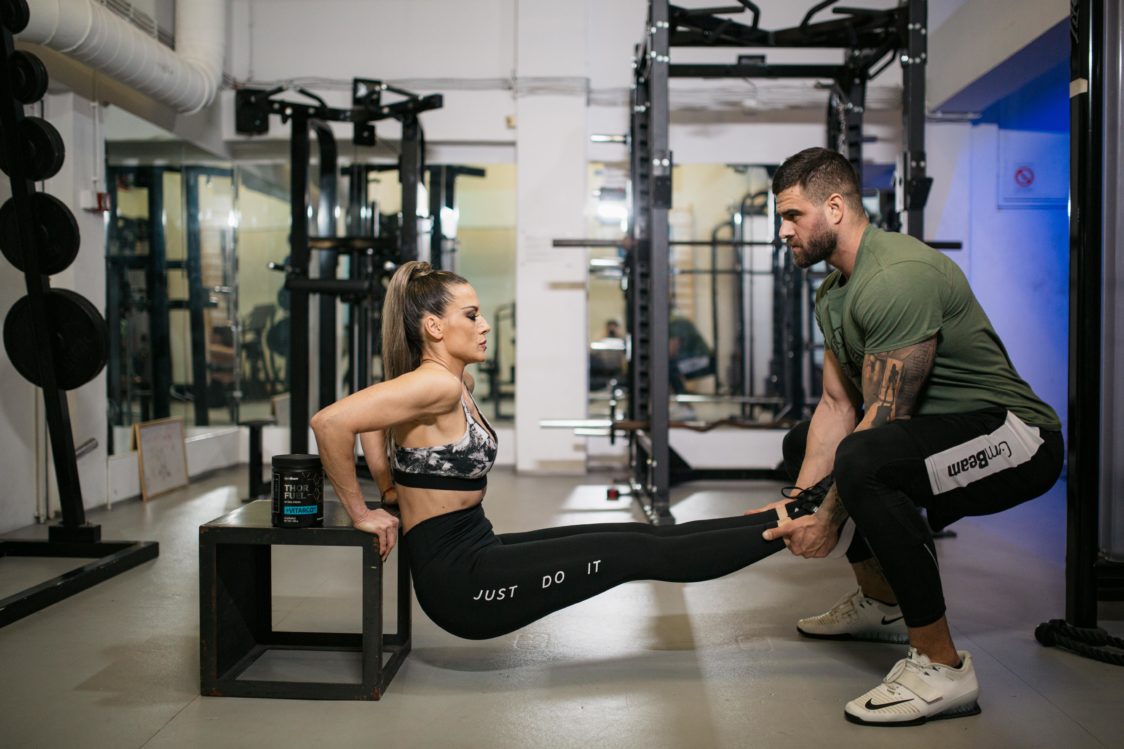Table of Contents
Are you considering entrusting yourself to an online coach on your way to a better figure? His advice can really help you, but it can also hurt you. Therefore, it is important to choose a true expert and not a person who only has a coach certificate from a weekend seminar. Look with us at how to find out if your online coach and his diet is bad.
How to tell if your online coach is bad
There are several guaranteed tips that you should verify soon before you decide to choose a particular coach. It is a series of questions that a good coach should be able to answer and he should live according to them as well. Read about what to look out for when choosing an online coach.

He does not hold a certificate
Many, if not most, coaches today hold either a high school or university degree after graduating from a sports science study programme or a certificate after completing a weekend coach training. There would be nothing wrong with that, but a really good coach takes care of his further education, and he can prove to you that he is constantly trying to improve his skills. He spends his time not only lifting weights in the gym, but he is also buried in a pile of specialized articles and books on human anatomy or he attends additional courses and increases his level of expertise. If an online coach can verify these certificates and knowledge, be sure that he will not only care about money, but he will really enjoy his work and will be interested in it.
Regarding the expertise of personal coaches in the field of food and diet, education in this field is a bit more challenging. In order to be considered a nutrition consultant, he would have to hold a university degree in dietetics, which mainly specializes in clinical nutrition. Many coaches therefore supplement their profile of knowledge in the field of nutrition with self-study, and many times by observing the reaction of themselves and their clients to the individual diets that he has created. [1] [2] [3] [4] [5]

He does not look fit
A coach may not look like a model from Muscle & Fitness magazine, but it would be much harder to trust an overweight coach or by contrast, a thin person without muscles. A coach should not only care about his education, but also about his appearance. Exactly this is his brand and the initial sales evidence. If the coach can verify his abilities on his physical condition, he will convince you all the more to put your trust in him. However, if a coach doesn’t have more muscles or less fat and a better health profile than an average person, why should you listen to his advice on building muscles, losing fat and improving your health? [1] [2] [3] [4] [5]
The progress of his clients is not available
As you want to see, for example, the carpenter’s results of his work, the same is true of a coach. Especially when it comes to an online coach whom you unfortunately can’t see him at his work. The right and good coach, who is proud of his work and stands behind his skills, should have references or even captured the progress of his clients at disposal. If he doesn’t have it, it can mean two things. Either he is just starting his job as a coach, which does not necessarily mean that he will be bad. He simply has less experience. Alternatively, what is the worse scenario, he does not have any results to boast with, which definitely makes him a bad choice for an online coach. [1] [2] [3] [4] [5]
He does not control your progress
As important as your initial assessment from the coach is scheduling a follow-up assessment, which should be repeated every few weeks. At the beginning of the collaboration, your coach should find out all the necessary information from you – your body weight, measurements, height, normal diet, physical condition, your goal or health condition. Subsequently, based on this information, he should set up your training and diet plan and monitor your progress to make sure his advice is helpful. The right online coach should require you to regularly record your weight, measure the circumference of your body parts, or take photos from various angles to see if you are making progress. At the same time, if there are no results, he should recommend another plan to you free of charge. If your coach doesn’t seem to be interested in helping you achieve specific goals, chances are he is only interested in the growth of his bank account. [1] [2] [3] [4] [5]

He does not have a plan ready for you from the beginning
It is increasingly common to meet coaches who do not have a plan prepared in advance for their client and usually make up the trainings “on the go”. This is definitely not the best way. At the beginning of your first meeting, the coach should be able to define your skills and needs and set up a long-term training plan that you will stick to in order to achieve your goal. You will achieve your goals only under certain conditions and planning certainly belongs to them. In addition, you will also be able to mentally prepare for what awaits you, so nothing will surprise you. You can consult your coach about the exercises in advance or explain to him that you do not yet feel ready for that particular exercise. The same is true for nutrition consultants. You should be able to prepare for how your diet will change. [1] Many influencers and self-proclaimed online coaches also offer a ready-made training and nutrition plan or e-book for sale. But you need to be careful about that, since these plans are mostly general and do not focus on your specific goals. At the same time, it is good to be able to estimate which influencer can be considered a coach. It will be best if you find out what education he has in this area, whether he has any certificates available, or what his fitness history is.
Moreover, you should also watch out for strict diets and excessive caloric deficiency. In the long run, a balanced diet is the most effective, based on your daily recommended calorie intake, in combination with exercise. You should therefore be cautious and observe whether your plan involves taking in enough calories depending on your level of activity. Planning a balanced diet and regular training is the way to burn fat and improve your form. Eating less and burning more calories is not the right way. If you set out on this journey, you may not have any energy left to exercise and it may cause you some health problems. [4]
He prefers cardio to strength training
Coaches who focus only on losing weight and not on building muscles and strength really don’t know anything about weightlifting. Those who focus only on burning calories by doing cardio, toning (light training) or basic exercises usually need to strictly reduce their caloric intake to see any progress. Many coaches also recommend women not to even start with the strength training and stick to cardio only. They claim that weightlifting is only for men. Such coaches probably don’t know much about human anatomy. Women, as well as men, need strength training to burn fat and tone their bodies. However, they do not need to worry about growing robust muscle mass, as is the case with men. They have higher levels of the hormone testosterone, which is responsible for the rapid increase in muscle mass. So, if you start with strength training in order to build a good muscle base and tone your body, you can increase your resting metabolism, thanks to which you will burn more calories. [8] [9]
Basal metabolic rate (BMR) is the rate at which your body burns calories at rest. This speed is determined not only by the natural functions of your body, such as breathing or sleep, but also by the amount of muscle tissue you have. Whether you have more or less muscles simply determines how many calories you burn. [8] [9] This increase in BMR due to higher muscle mass not only facilitates fat loss, but it also keeps you fit for a long time. So, if your goal is to lose weight, and your coach recommends you to do only a light training or cardio, he may not necessarily be a bad coach. However, his methods are likely to be less effective than if you included also weightlifting into your weight loss process. [1] [2] [3] [4] [5] To learn more about BMR and its effects on weight loss, feel free to read our article What is basal metabolism and how to calculate BMR?

He supports only one style of training
There are several variations of training styles, from weightlifting, through cardio to HIIT workouts, yoga or Pilates. Although these styles are very different, they still have something in common, and that is a physical activity. Every physical activity you engage in is a good choice. It helps your health and, if you engage in it regularly, the results are guaranteed to come. But if your online coach tells you that you should follow only one training style, he probably doesn’t know what he’s talking about.
There are coaches who are advocates of strength training only and consider cardio or other “hopping” to be ineffective. In this case, you should definitely start looking for a new coach. Strength training will help you strengthen your muscles and subsequently lose weight, but in combination with cardio or HIIT training, your results can come much sooner. For overall health, you need to train in a variety of ways to support not only your strength, but also your endurance, flexibility, coordination, balance or dexterity. In addition, you will avoid falling into a routine, which can become one of the main reasons why you will want to give up exercising. Your trainings will be varied, imaginative and you will see your coach does not only want you to work hard, but also to fall in love with what you do. [1] [2] [3] [4] [5]
He does not educate you
Quite often in the world of fitness, you meet coaches who will provide you with only such amount of information about your training and diet that you will need to use their services continuously. Overall, there would be nothing wrong with that, but some exercises would be much better if your coach explained the technique to you in detail, and at the same time the reason why it is important. The right coach should try to educate his client. His goal should be to educate his client to such an extent that he no longer needs his services. It may sound silly, but the right coach is not primarily focused on the money, but he really wants to change people’s lives and help them. In addition, if he educates his client sufficiently, he will be satisfied with his services and will definitely recommend him further. The coach will lose one client over time, but he will gain many more. However, there may also be a situation where the client will be so satisfied with the behaviour and knowledge of his coach that he will continue to use his services. Therefore, when choosing a coach, focus on what your introductory lessons and meetings are, whether you have got enough information from the coach, and whether he is really trying to bring you fully into the world of fitness. [1] [2] [3] [4] [5]

A warm-up is not part of the training plan
You have received a training plan from your online coach and it looks like this: 30 minutes of cardio every day, then strength training on your abdomen, thighs, legs, back, and so on. Of course, you should return such a plan to him immediately. Not only should there be specific exercises described for each day, including instructions with the correct technique and the exact number of repetitions, but it also lacks the most basic thing – a warm-up. Warming up your muscles before training and cooling down after training is extremely important, and thanks to them you can prevent unpleasant injuries, muscle pain or support muscle growth during regeneration. However, many “coaches” forget this fact and advocate themselves with the sentence: “Warm up yourself, you can do it“. Stretching at the time of warm-up is just as important as the training itself. Therefore, its technique should also be sufficiently and well explained by the coach. [1] [2] [3] [4] [5]
You might be interested in these products:
How to find out that the diet plan prescribed by an online coach is wrong
To find out if the diet plan your coach has prescribed to you is not good, you should focus on several points. These will determine whether he is familiar with nutritional counselling or whether you should find a more reputable person on this matter.

Your diet plan is the same as the diet plan of his other clients
Firstly, you should realize that you are a unique human being, and so your coach’s approach to you should be just as unique. The training plan and diet plan should therefore be tailored to your needs. If the coach offers you a diet plan that is identical to the diet of other clients or himself, we recommend you to look for another coach or nutrition consultant. The diet of an 80-pound, 180-centimeter-tall muscular man and a slim 50-pound, 160-centimeter-tall woman should look different, with no previous experience with exercise. Therefore, find out if the diet plan is really created exactly for you, ask the coach for a sample diet plan for other clients, or ask him for his own diet plan and compare it with yours. [3] [4] [6]
Your diet plan is written on a piece of paper
We do not claim that the diet plan must be delivered to the client on gold paper with amazing graphics, but every coach should have a certain level of self-presentation. It often happens that clients get a hastily written list of foods that they can eat. He could send such a menu to each client, and at the same time easily find it on the Internet. It is necessary for the coach to listen to you, he should find out what foods you like, what you are allergic to, whether you can actually limit some of the macronutrients, and so on. At the same time, the diet plan should be varied and you should change it regularly. Therefore, make sure that the coach does not only send you a list of ingredients, but a detailed list of foods, meals, recipes and their nutritional values. You will need them for accurate calorie counting. [3] [4] [6]
Your diet is not nutritionally balanced
A balanced diet supplies your body with the nutrients it needs in order to function properly. It should consist of the recommended daily dose of three basic macronutrients – proteins, carbohydrates, fats, but you should not forget about fibre or sufficient amount of vitamins and minerals. To get the right nutrition from your diet, you should consume most daily calories from fresh vegetables, fruits, seeds, legumes, nuts, dairy products or lean meat. It is these foods and ingredients that should form the basis of your diet, as they contain a lot of necessary macronutrients.
The number of calories is a measure of the amount of energy stored in food. Your body uses calories from food for walking, thinking, breathing and other important functions. An average person needs to take about 2,000 calories a day to maintain his weight. However, your specific daily calorie intake may vary depending on your age, gender and level of physical activity. Men generally need more calories than women, as do people who exercise.
A balanced diet is important because your organs and tissues need proper nutrition to work effectively. Without proper nutrition, your body is more susceptible to disease, infection, fatigue, and poor exercise performance. Therefore, ask your coach if your diet contains foods with enough of the necessary nutrients. [3] [4] [6]

Coach avoids your questions or cannot answer them
It is really impossible to know everything about diet and nutrition, as each person is unique. However, if you ask your coach a question about the diet plan and he cannot answer it, it should be in his best interest to find out the answer to your question. You will check his passion for his work, and you will also find out if he really cares about the satisfaction of his clients. [3] [4] [6]
The first step you should take before choosing your online coach is to find out the references for each candidate. If the coach is really good, his reputation will spread quickly, so you won’t have to come across an incompetent coach who will not care about you and who will only be interested in money. We believe that we have helped you with our tips on how to find out if an online coach and his diet plan are bad. Do you want to help your friends with the choice, too? You can do it by sharing our article.
[1] John Berardi, PhD, CSCS – https://www.precisionnutrition.com/you-need-a-new-trainer
[2] Top 10 Signs of a Bad Trainer - 10 Things to Consider When Choosing a Personal Trainer – https://www.fitnessblender.com/articles/top-10-signs-of-a-bad-trainer-10-things-to-consider-when-choosing-a-personal-trainer
[3] James Johnson - 20 Signs Your Personal Trainer Sucks – https://www.lifehack.org/articles/lifestyle/20-signs-your-personal-trainer-sucks.html
[4] M&F Editors - 11 Signs Your Trainer Is Full of Crap – https://www.muscleandfitness.com/workouts/workout-tips/11-signs-your-trainer-full-crap/
[5] 5 Signs of a Bad Personal Trainer – https://blogs.webmd.com/food-fitness/20190621/5-signs-of-a-bad-personal-trainer
[6] 8 Signs You Have a BAD Diet Coach
[7] Natalie Butler, RD, LD - Balanced Diet – https://www.healthline.com/health/balanced-diet
[8] Stacy Sampson, DO - What Is Basal Metabolic Rate? – https://www.healthline.com/health/what-is-basal-metabolic-rate
[9] Robert G. McMurray - Examining Variations of Resting Metabolic Rate of Adults: A Public Health Perspective – https://www.ncbi.nlm.nih.gov/pmc/articles/PMC4535334/


Add a comment